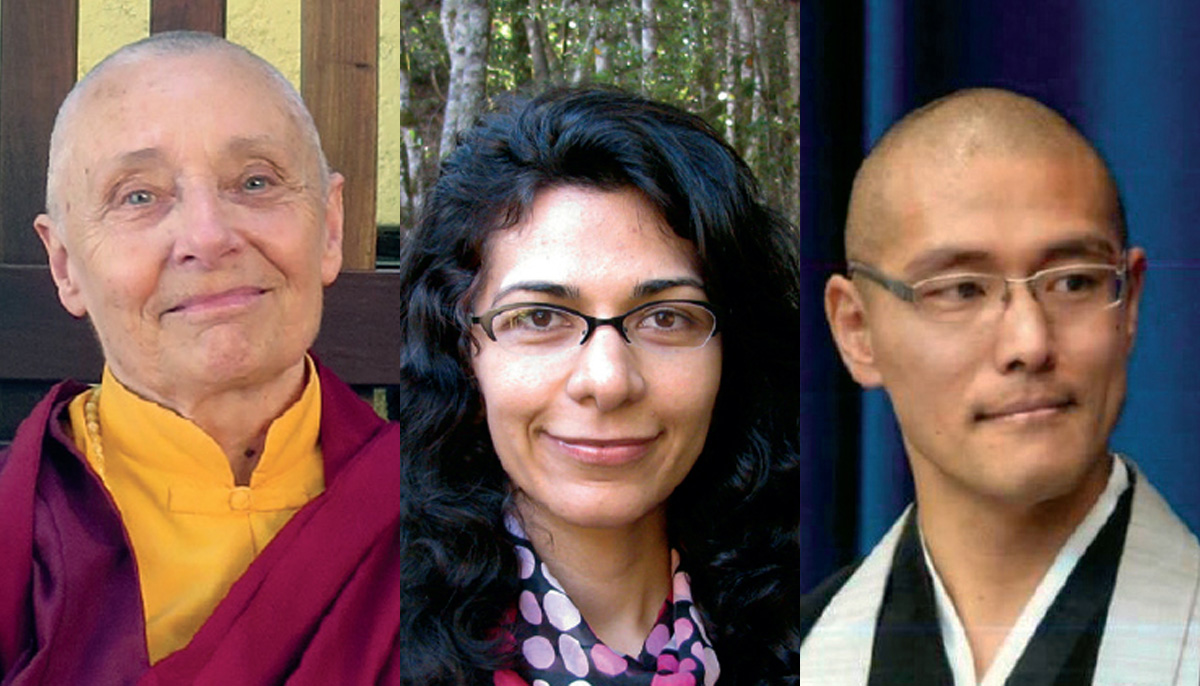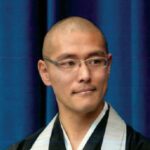Question: We are encouraged to dedicate the merit of our practice to all beings. It’s a beautiful idea, but what effect, if any, does it really have? And can you offer something you’re not sure you even have?
Jetsunma Tenzin Palmo: In traditional Buddhist countries, the concept of punya has always played an important role. Usually translated as merit or even as goodness, punya represents the positive karmic results of good intentions and actions. This belief in the power of meritorious actions is perceived as an ethical force that can be directed toward any chosen object. So people set about “making merit” and rejoicing in it; the merit is then dedicated to others and thus shared. This serves as an encouragement to perform acts of goodness such as generosity and kindness. We can also rejoice in and share the goodness we see others perform.
At the start of formal practice, we take refuge in the three jewels and then, in the Mahayana traditions, we recite the bodhisattva vow and remind ourselves that we are undertaking this practice not just for our own sake but to benefit all beings. In other words, we set our spiritual GPS to the destination of enlightenment-for-the-sake-of-all. Then, at the completion of that day’s practice, we again remind ourselves of our aim by dedicating whatever goodness has been gained to the welfare and happiness of all beings—or to the whole planet and beyond. These are trainings in bodhichitta, reminders that our practice has a meaning beyond benefitting just ourselves.
Even the effort to do the practice rather than watch TV or play on the computer is a good thing, and we can feel pleased and satisfied by it, wishing to share that essential goodness with others. We can dedicate that merit whether or not we understand the mechanics of how it all works. Just do it. So much is hidden from our rational mind. Let us retain a sense of mystery and not be narrow and materialistic. The dharma goes beyond our conceptual thinking.
This is not just a “beautiful idea” but is also practical—the world is in dire need of goodness and positive energy. Thoughts have power. Prayers and aspirations have force.
Almost everyone experiences a special atmosphere when visiting sacred places such as Bodhgaya or Assisi, despite the surface chaos or commercialism. Centuries of devotion, thoughts directed to the sacred, have created a palpable spiritual energy there. Likewise, we spontaneously feel the profound sorrow and heaviness of spirit when visiting Auschwitz or Dachau. We swim in an ocean of thought forms but, like fish in water, we do not recognize our own psychic environment.
If only we could see it, we would know that the psychic pollution surrounding this planet is far denser than the physical pollution. There is so much anger, greed, jealousy, fear, and general negativity in society, all of which is further cultivated and celebrated in the media. In this darkness, we need some light. Dedicating our positive energy helps to bring balance and joyful appreciation into a seemingly hopeless situation. Drop by drop, the water jar is filled. Therefore, through the merit of this practice, may all beings be happy and free from suffering!
Nikki Mirghafori: When I came to Buddhist practice, the concept of “dedicating merit” felt familiar from my Persian cultural upbringing in a liberal Muslim family. I grew up with regular kheyraat and savaab, meritorious acts done so that the rippling effects of their goodness would benefit deceased loved ones. I remember as a child participating in giving away food to strangers, and my grandmother’s special prayers, a kind of “merit” dedicated to her deceased brother, my uncle. Of course, such practices are not unique to Persian culture. Many cultures around the world have rituals to dedicate positive actions in the name of the ancestors.
The Buddhist practice of dedicating merit is similar in spirit, but with two significant expansions. The primary and most important aspect is to recognize that our practice, however shoddy it might feel, is a meritorious act of goodness, not so different from other acts of generosity in the world. It is not how calm our mind gets or how many insights arise during a practice period, but simply our intention of having tried, having sat or walked, having aligned our actions with our highest intentions, even for a minute. Even one moment of attempting to settle one’s mind and heart is a moment of cultivating goodness, which in turn inclines our heart and mind toward more goodness, love, and wisdom. And let us have humility and awe about how each little moment of goodness may percolate through the world, in the ways our thoughts and actions affect ourselves and others. So, one effect of the practice of dedicating merit is building trust that our practice is synonymous with goodness in and of itself, and the other is seeing the potential for its powerful rippling effect. It is this goodness, or merit, that we see, recognize, acknowledge, and share.
The other dimension is that this dedication practice—not keeping what’s good just for ourselves and our immediate circle of loved ones—is a radical act of generosity. Dedicating merit then becomes synonymous with the practice of metta, where we are extending our goodwill and generosity of heart in ever-expanding concentric circles, starting with ourselves, benefactors, dear friends, and extending to neutral relationships, difficult ones, and finally, all beings everywhere. Training and expanding our heart in generosity and goodwill is another effect of the practice of dedicating merit.
At some point along the arc of our maturity as practitioners, our practice becomes indistinguishable from our life; our practice becomes our life, and our life becomes our practice. Consider what it would be like to live your life as an offering to all beings? What if, at the end of the day, every day, you dedicate—freely offering up for the benefit of all beings everywhere—all the merit or goodness generated from living your one and only precious life?
Gyokei Yokoyama: Eko, or transfer of merit (Skt., parinamana), is a Buddhist practice to benefit others through our thoughts and actions. We offer merit to sentient beings, deities, devas, and even ghosts (the ghosts, who might otherwise haunt us, may, through merit, become our guardians). This reflects the Buddhist teaching that buddhanature is true in all beings, beyond any bias, discrimination, or stereotype.
Traditionally, merit is also offered to the dead. While the intention is firm in our mind, we offer sweets, tea, and various other items. There is no belief that these items can be transferred to the next life, in the same way that we say, “You can’t take it with you.” But we say the merit, which arises from sincere intentions, can be transferred. It’s said that chanting a sutra or offering incense wholeheartedly, with a genuine intention, brings about merit and helps the dead move further toward enlightenment.
But what effect, if any, does this really have? We can see how it works by looking to our own experience.
Occasionally, I see people throw trash out of car windows or onto the sidewalk while walking. The consequence of that action is immediately visible, right in front of us; the effect of not littering, even if we don’t consciously notice it in the same way, is visible as well. Beyond the visible, beyond what we see on the streets, are the effects on people’s minds, how litter or its absence changes the atmosphere, which in turn changes us. And beyond that, in the realm of intention, are effects that we will never know through our senses or consciousness.
In my home village, people work in the rice fields, and as they do, they hear the sound of the temple bell in the distance. They say that when the sound of the bell reaches their ears, they feel peaceful. The sound literally resonates in their minds, and as it does, they feel they are truly working together. Anyone can have an experience like this.
In the meditation hall, sitting silently or chanting a sutra with no one else around, it’s natural to wonder what effect there might be, if any. We may doubt that we are inspiring the world, or making any change, or offering anything at all. But it’s the same as the bell. There’s no difference.
Ultimately, in Buddhist practice, there is no separation between giver, receiver, and gift. Whatever we do, whatever we offer, we are not practicing for sentient beings. We are practicing with sentient beings as sentient beings. It’s infinitely interdependent.



